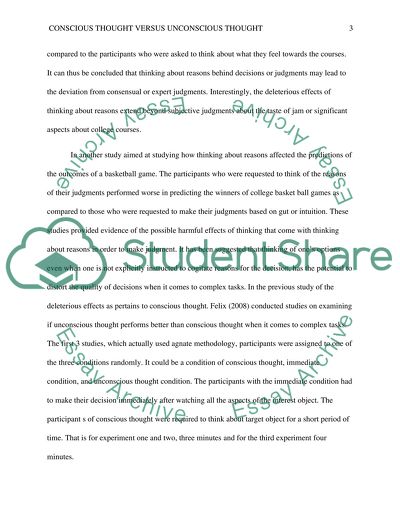Cite this document
(“Conscious Thought versus Unconscious Thought Essay”, n.d.)
Retrieved from https://studentshare.org/psychology/1436722-essay-topic-related-to-newell-et-al
Retrieved from https://studentshare.org/psychology/1436722-essay-topic-related-to-newell-et-al
(Conscious Thought Versus Unconscious Thought Essay)
https://studentshare.org/psychology/1436722-essay-topic-related-to-newell-et-al.
https://studentshare.org/psychology/1436722-essay-topic-related-to-newell-et-al.
“Conscious Thought Versus Unconscious Thought Essay”, n.d. https://studentshare.org/psychology/1436722-essay-topic-related-to-newell-et-al.


